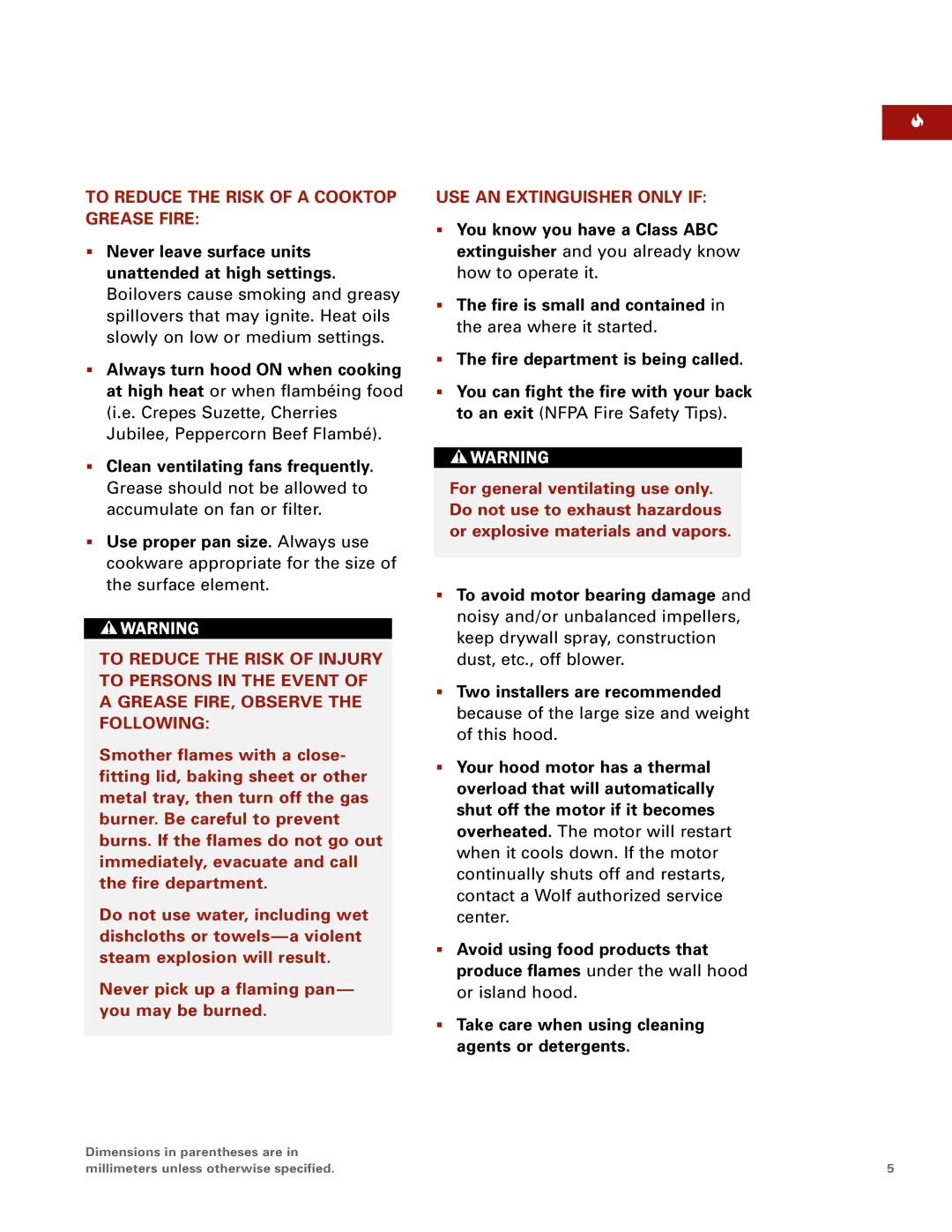
TO REDUCE THE RISK OF A COOKTOP GREASE FIRE:
Never leave surface units unattended at high settings.
Boilovers cause smoking and greasy spillovers that may ignite. Heat oils slowly on low or medium settings.
Always turn hood ON when cooking
at high heat or when flambéing food (i.e. Crepes Suzette, Cherries Jubilee, Peppercorn Beef Flambé).
Clean ventilating fans frequently.
Grease should not be allowed to accumulate on fan or filter.
Use proper pan size. Always use cookware appropriate for the size of the surface element.
TO REDUCE THE RISK OF INJURY TO PERSONS IN THE EVENT OF A GREASE FIRE, OBSERVE THE FOLLOWING:
Smother flames with a close- fitting lid, baking sheet or other metal tray, then turn off the gas burner. Be careful to prevent burns. If the flames do not go out immediately, evacuate and call the fire department.
Do not use water, including wet dishcloths or
Never pick up a flaming pan— you may be burned.
Dimensions in parentheses are in millimeters unless otherwise specified.
USE AN EXTINGUISHER ONLY IF:
You know you have a Class ABC extinguisher and you already know
how to operate it.
The fire is small and contained in
the area where it started.
The fire department is being called.
You can fight the fire with your back to an exit (NFPA Fire Safety Tips).
For general ventilating use only. Do not use to exhaust hazardous or explosive materials and vapors.
To avoid motor bearing damage and
noisy and/or unbalanced impellers, keep drywall spray, construction dust, etc., off blower.
Two installers are recommended
because of the large size and weight of this hood.
Your hood motor has a thermal overload that will automatically shut off the motor if it becomes
overheated. The motor will restart when it cools down. If the motor continually shuts off and restarts, contact a Wolf authorized service center.
Avoid using food products that
produce flames under the wall hood or island hood.
Take care when using cleaning agents or detergents.
5
